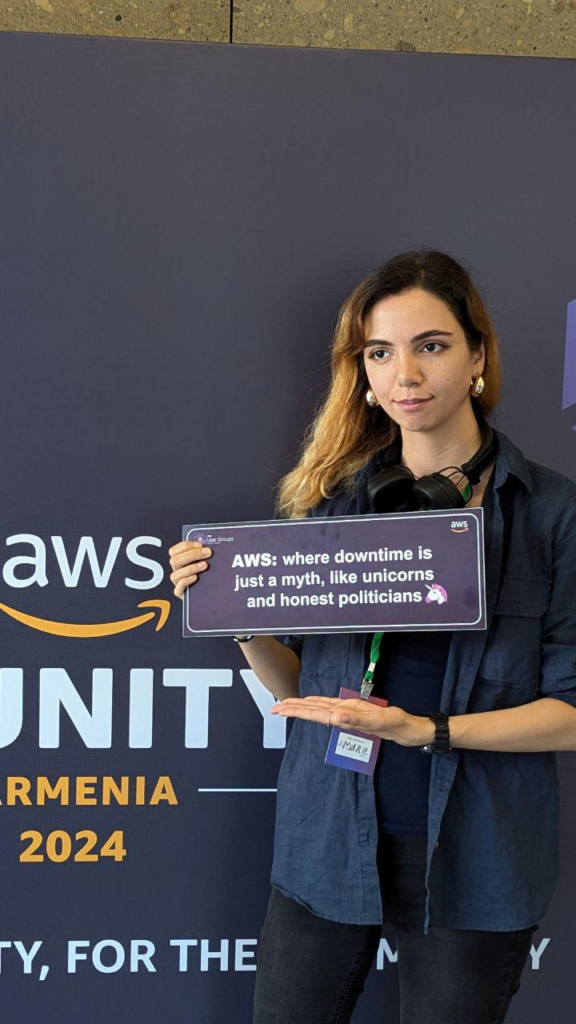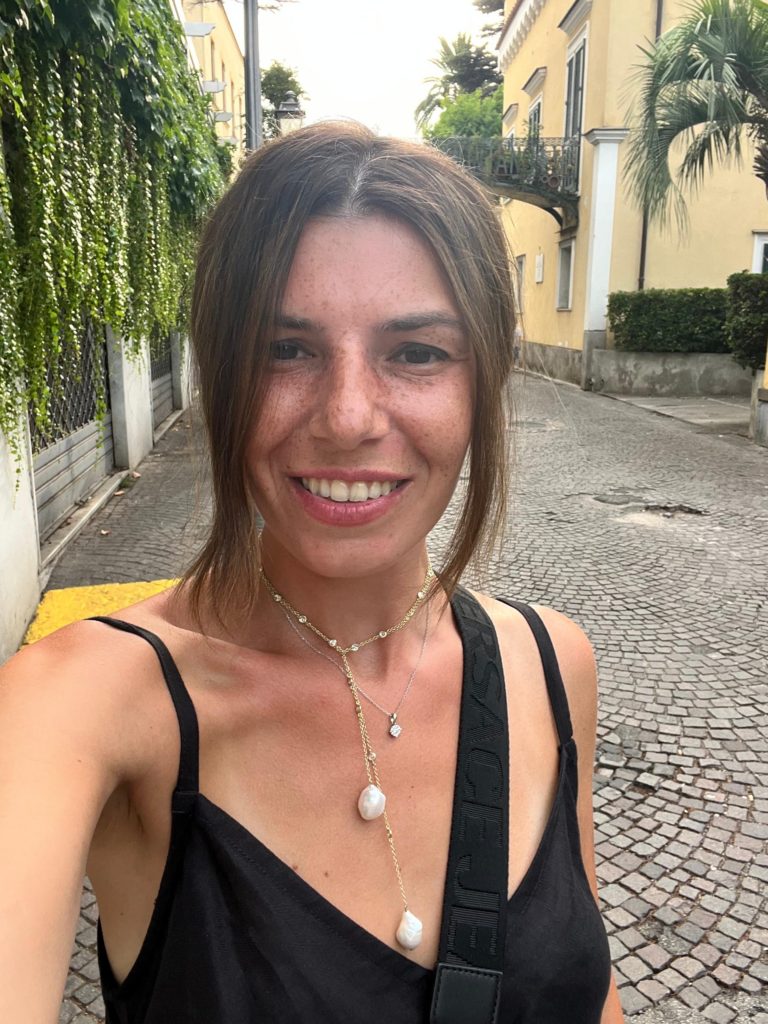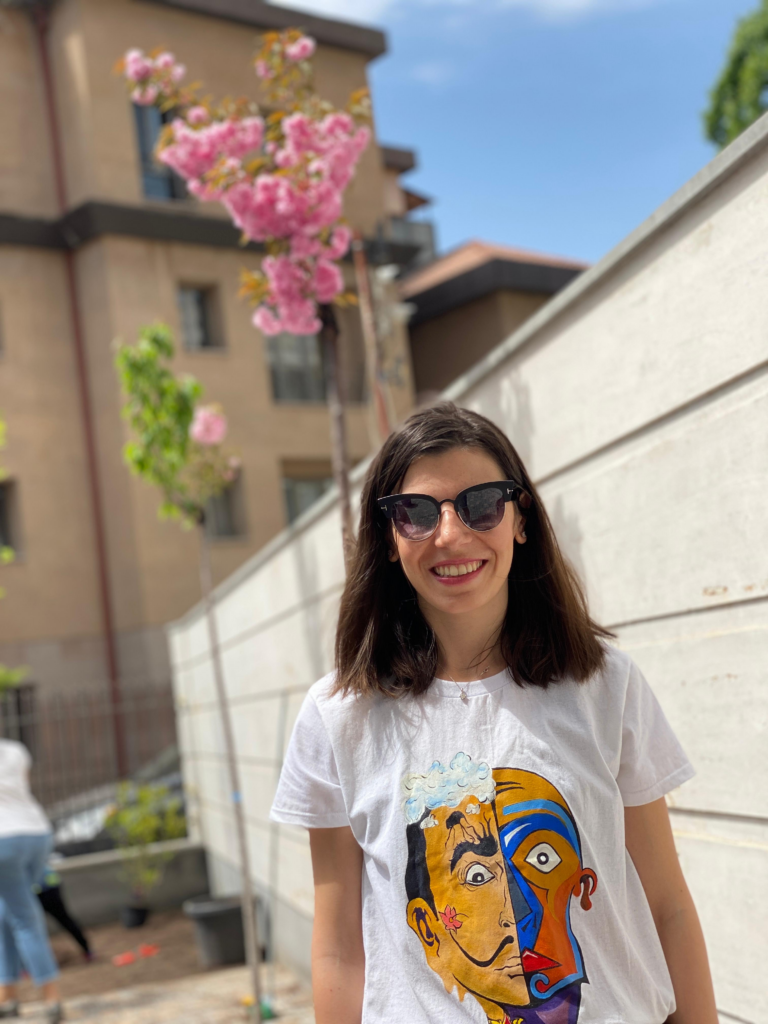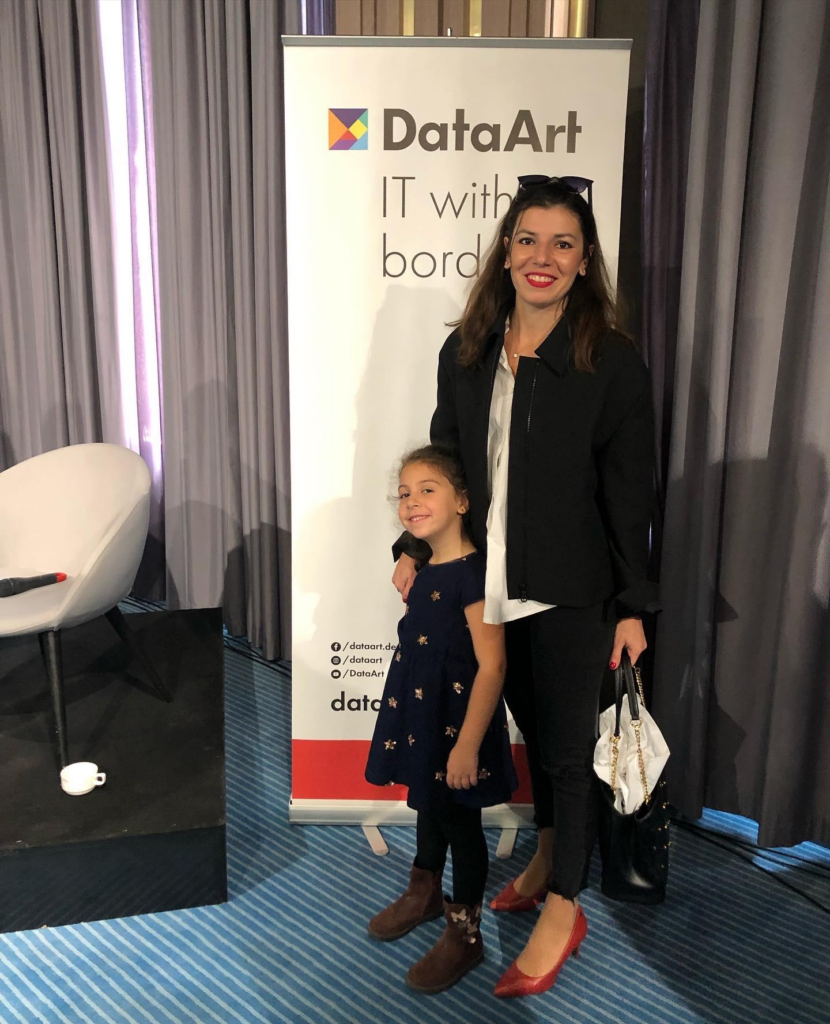Women in Tech. How successful women from DataArt Armenia are breaking stereotypes and building careers in IT

Two women, two unique journeys, one shared goal. Discover how they are shaping the tech industry in Armenia.
Mane Hambardzumyan, Yerevan city, Strong Middle Cybersecurity Specialist, LinkedIn
About me
I was born and raised in Armenia. I have a bachelor’s degree in Information Security from the National Polytechnic University of Armenia.
My diploma work focused on an Endpoint Detection and Response product, which I built from scratch. But before that, here is a bit of history.
It might sound unbelievable, but I started my career in graphic design at the age of 15. At 16, I switched to game development because I have always adored computer games. Eventually, I found my destination — cybersecurity.

Additionally, I love photography, ramen, reading, and watching scientific videos.
Why did I choose such a hardcore path? Because I have always wanted something more — not just coding, not just math, not just operating systems or networking — but all of it together. How cool is that?
I have been working in the cybersecurity field for over five years now, and every day feels like climbing another step on this never-ending staircase of knowledge.
I also had the opportunity to teach at the National Polytechnic High School, which became another strong motivation for me to help cybersecurity flourish in my region.
At the same time, I am building an information security community in Armenia — a safe and welcoming space for newcomers, Windows users in a world full of *nix lovers, and, of course, for women — to connect, ask questions, share experiences, and support each other.

How I got into IT
I’ve always loved math and physics. I enjoyed experimenting with machines, computers, and even constructing robots. At the same time, I had a creative side — I loved drawing. Eventually, I found a way to blend that creativity with technology, which led me to choose career paths in IT where the only limit is your imagination and science.
I learned cybersecurity through self-study and by participating in some super-cool private classes. Since I was selected as one of the top students, the organizers offered me an internship at their company—and that’s how my professional journey in cybersecurity began.
About stereotypes
In the very early stages of my career, when I was working as a penetration tester and still studying at university, some people did not take me seriously. They would think, “How is this little lady going to hack us — and then tell us how to fix it?”
It was never a problem for me, though — more like a challenge. My attitude was always, “Yes, I can find gaps in your security and help you fix them.”

Obstacles for women in IT
Personally, I have not faced obstacles in IT because of my gender. However, I would love to see more and more women become interested in these fields. That is one of the main reasons I am building an Infosec community — a safe and supportive space where women can learn, grow, and feel confident pursuing careers in cybersecurity.
Recommendations for those who are just starting their journey
Be a nerd! Look up every unfamiliar word, no matter how small. Create labs at home, break things, fix them, and experiment. As we say in Armenian, get your nose everywhere — meaning try everything and participate in everything you can.
Join challenges and projects, attend conferences, and write blogs about what you have read or learned. Connect with others, join communities, and most importantly — never be afraid to ask questions.
And please, please, please remember: we have all failed at some point — but that is exactly how we grow and rise. Failure is part of the journey.

Yelena Poghosyan, Yerevan city, Software Engineer, PM, LinkedIn
About me
I am currently working as an Engineering Manager at DataArt, where I lead cross-functional engineering teams to deliver high-quality solutions that align with business goals. My core responsibilities include guiding and mentoring engineers, implementing industry best practices, and establishing efficient processes that support both technical excellence and team growth. I focus on ensuring smooth project execution, timely delivery, and continuous improvement. Additionally, I provide technical leadership and foster a collaborative environment.
How I got into IT
Growing up in a family of mathematicians and physicists, I was naturally drawn to analytical thinking and problem-solving. It felt almost inevitable that I would follow a similar path, and early on, I found myself most engaged when working with numbers and logic, which eventually led me to study Applied Mathematics and Informatics at university.
During my studies, I began to notice a gap between theory and practice. We were introduced to various programming languages, but there was very little actual coding or hands-on experience. While pursuing my master’s degree, I started searching for a job to gain practical skills — and I was fortunate enough to be hired by a startup. That is how my career as a frontend engineer began.
Over the years, I have taken on different roles and responsibilities, working alongside many talented and inspiring professionals who helped me grow. But two major turning points shaped my journey in IT.
The first was when I joined a new company as a frontend engineer. Our main client was one of the largest publishing companies in the USA, and the product we developed was an eCommerce platform built on Sitecore CMS — a technology I had no prior experience with. We had direct communication with the client and were immediately sent to the USA to get certified in Sitecore, so we could effectively support and enhance their website. At that time, Sitecore was still relatively unknown in Armenia, and I believe our team was among the first certified developers in the country. Although the project eventually ended, I knew I wanted to continue working as a Sitecore developer. That experience not only strengthened my technical expertise but also taught me how to adapt quickly and work effectively in cross-cultural environments.
My second big leap came when I joined DataArt. I started as a Sitecore Engineer and, while continuing to develop my technical skills, I also began focusing on leadership.
After several years as a Sitecore Engineer at DataArt, I felt ready to expand my impact. I wanted to grow beyond coding and contribute to team development, project strategy, and decision-making. That led me to pursue a Development Manager role — one where I could blend my technical experience with people and project leadership. The transition was not easy. At times, I doubted my decision and missed the comfort of hands-on development. Leadership brought a new level of responsibility and uncertainty. But I stayed committed, and over time, I grew into the role. That experience taught me that discomfort often signals growth — and it has been one of the most rewarding steps in my career.

About stereotypes
Fortunately, I have not personally faced any stereotypes throughout my career. I have been privileged to work in environments where I was surrounded by supportive, open-minded, and encouraging colleagues who contributed significantly to my professional growth. Many of them generously shared their knowledge and experiences, offered guidance during challenging moments, and inspired me to keep learning and evolving as a professional.
Another crucial factor in my journey has been the unwavering support of my family. Their belief in me and constant encouragement gave me the confidence to pursue opportunities, overcome obstacles, and stay resilient during demanding times. I truly believe that these two factors played a vital role in shaping my career.
Obstacles for women in IT
In my experience, one of the most challenging aspects for women in IT is achieving a healthy work-life balance, especially when it comes to managing both a demanding career and family responsibilities. Finding that balance has never been easy for me. There were times when I had to work long hours — sometimes late into the night or on weekends — to meet deadlines or resolve critical issues. During those moments, I often felt a sense of guilt, particularly toward my children, for not being fully present.
What helps me most is having a strong support system — both at home and at work. I am still working on improving this balance every day, and I believe it is important to talk about it openly so others do not feel alone in facing the same challenge.

Recommendations for those who are just starting their journey
I believe the world has changed significantly, and today, professionals are valued based on their skills and contributions — regardless of gender. I am fortunate to be surrounded by many successful women who inspire me with their dedication and achievements.
In my view, the key ingredients for success are hard work, dedication, and strong communication skills. My main advice for those starting out is: never shy away from new opportunities, even if you do not have experience in that area. Trying new things is how we grow and learn.
Always seek feedback and use it to improve. And above all, prioritize communication and relationship-building. Whether you are a junior engineer or a manager, around 50% of success comes from soft skills — being able to communicate clearly, collaborate effectively, and build strong, positive working relationships.
